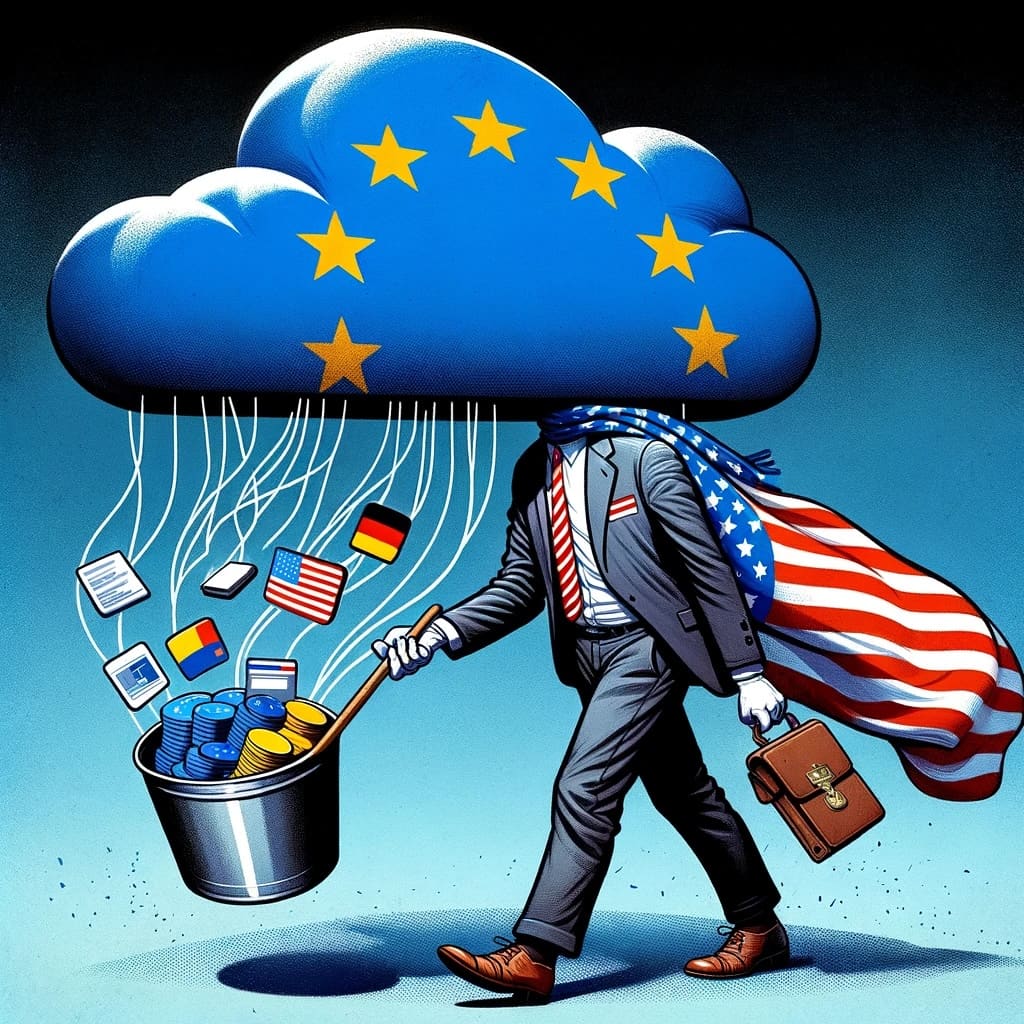In an increasingly digitized world, technological infrastructure has become a strategic element for economic development, national security, and the autonomy of nations. However, the growing dependence on American and Chinese companies for critical services such as cloud storage, telecommunications, and artificial intelligence poses significant challenges for Europe. It is time for European governments, businesses, and citizens to support 100% European infrastructure companies, not only for economic reasons but also for reasons of sovereignty, sustainability, and resilience.
Digital Sovereignty: Regaining Control
Digital sovereignty is a key concept in the era of technological globalization. Relying on foreign companies for essential services means relinquishing control over critical data and information systems. Companies like Amazon Web Services (AWS), Microsoft Azure, or Alibaba Cloud, while leaders in their fields, are subject to the laws of their home countries, which do not always align with European interests or values. For example, laws like the CLOUD Act in the United States allow the government to access data stored by American companies, even if that data resides outside its borders.
Europe has the opportunity to regain control over its digital destiny by supporting local companies such as Deutsche Telekom, Orange, Stackscale (Grupo Aire), OVHcloud, or SAP. These companies not only operate under European legislative frameworks but are also committed to protecting citizens’ data and privacy, which are fundamental pillars of regulations like the General Data Protection Regulation (GDPR).
Sustainability: A Commitment to the Future
Europe has positioned itself as a global leader in the fight against climate change, with ambitious goals like the European Green Deal. European tech companies are aligned with this vision, developing more sustainable and efficient infrastructures. For example, OVHcloud has been a pioneer in implementing liquid cooling systems to reduce energy consumption in its data centers, while other European companies lead the investment in renewable energies.
In contrast, many American and Chinese companies, while they have made strides in this direction, operate in an environment where environmental regulations are less stringent. Supporting European companies not only means boosting local innovation but also contributing to a more sustainable future for everyone.
Resilience: Strengthening Strategic Autonomy
The COVID-19 pandemic and the recent energy crisis have demonstrated the importance of having resilient supply chains and technologies. Relying on foreign suppliers for critical infrastructures can expose Europe to vulnerabilities in times of geopolitical or economic crisis. A clear example is the tension between the United States and China, which has led to technological and trade restrictions affecting businesses and consumers worldwide.
By investing in European infrastructures, not only are jobs created and local innovation fostered, but the strategic autonomy of the continent is also strengthened. Companies like Nokia or Ericsson in telecommunications, or Accenture in IT services, are examples of how Europe can compete globally with high-quality solutions and cutting-edge technology.
An Opportunity for Growth and Innovation
Supporting European companies is not merely about protecting national interests; it is also an opportunity to drive economic growth and innovation. Europe boasts a vibrant tech ecosystem, with startups, research centers, and established companies developing innovative solutions in areas such as artificial intelligence, 5G, cybersecurity, and quantum computing. However, to compete with American and Chinese giants, these companies need more support, both in terms of investment and public policies that encourage their development.
Conclusion: Europe, Protagonist of Its Digital Future
Supporting 100% European infrastructure companies is not an act of protectionism but a smart strategy to ensure digital sovereignty, promote sustainability, and strengthen the resilience of the continent. In a world where technology is a key factor of power, Europe has the opportunity—and the responsibility—to take the reins of its digital future.
It is time for European governments, businesses, and citizens to prioritize local solutions, not just to protect our interests but to build a safer, more sustainable, and prosperous tomorrow. Technology is the engine of the future, and that future must undoubtedly be European.

